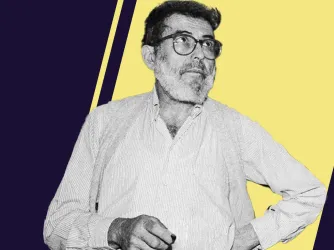Table of Contents
New Voices bill advances in Vermont, but Indiana effort faces new opposition

A bill to protect student journalists has advanced in Vermont while a similar measure has stalled in Indiana.
The bills are part of the Student Press Law Center’s New Voices campaign, an effort to enact student free press legislation on a state-by-state basis, modeled after 2015’s John Wall New Voices of North Dakota Act. The bills would protect freedom of the press for high school and college student journalists.
Vermont's legislation unanimously passed the state Senate in February and is now pending before the House Judiciary committee.
In his testimony in support of the bill, University of Vermont student media adviser Chris Evans said that, in Vermont high schools, “a culture has developed in which students simply don’t know what their rights are and therefore shy away from addressing issues that they fear an authority figure might disagree with; not even disapprove of, but disagree with.”
In Indiana, the bill that was passed by the state House with a vote of 88-4 was withdrawn by its sponsor in the Senate after it was opposed by the state’s Department of Education. In comments to the Student Press Law Center, Indiana Collegiate Press Association Executive Director Adam Maksl attributed the sudden opposition to a change in the state’s Department of Education administration.
But according to Hoosier State Press Association Executive Director and General Counsel Steve Key, opponents also feared the possibility that good journalism could endanger bad high school principals.
The Senate was considering the bill during the same week a Kansas high school student newspaper made national news for questioning their principal’s credentials and triggering her resignation. As Key explained to the Student Press Law Center:
“We were told by a legislator that the opponents were trying to basically spin that story that the students had done in Kansas as a bad thing,” Key said. “They put it, ‘Look what would happen under this bill; principals would get fired.’ They were trying to twist what was an example of the kind of excellent work student journalists can do at the high school level and trying to turn it into a negative, but I can’t say that that was what the issue of the legislators we talked to.”
FIRE has not been able to independently confirm Key’s comments.
While the Indiana bill itself has been withdrawn by its current sponsor, the language could be re-introduced as part of another bill, as it has already been passed by the House. The bill’s author, Rep. Ed Clere, may look to insert the language into another bill before the legislative session adjourns on April 29.
A New Voices bill would be particularly important in Indiana because of the U.S. Court of Appeals for the Seventh Circuit’s 2005 opinion in Hosty v. Carter, which applied the Supreme Court’s Hazelwood v. Kuhlmeier ruling to college students in Indiana, Illinois, and Wisconsin. Under Hazelwood, school-sponsored student speech that takes place outside of a forum for student expression can be censored for any “legitimate pedagogical concern.”
Illinois has since passed legislation to reverse the effect of Hosty in state colleges, leaving Indiana and Wisconsin as the only states where Hosty is controlling precedent. In the rest of the country, the law does not permit K-12 restrictions to be placed on college journalists.
In addition to North Dakota, Maryland and Illinois have also enacted versions of the New Voices Act (the latter applying only to high school students, as Illinois law already protected college student media). Similar bills are under consideration in Arizona, Missouri, Nevada, Rhode Island, Texas, Washington, and Vermont; and have stalled (but could be re-introduced) in Michigan, Minnesota, Nebraska, New Jersey, and, now, Indiana.
“FIRE is thrilled that state legislatures across the country are advancing legislation to protect student journalists from censorship or punishment,” said FIRE’s Legislative and Policy Director Joe Cohn. “With this legislation, Vermont’s student journalists will enjoy the robust freedom of the press that is necessary for them to do their reporting.”
FIRE will continue to monitor New Voices legislation in Vermont, Indiana, and elsewhere, and we hope these bills pass throughout the country.
Recent Articles
Get the latest free speech news and analysis from FIRE.

Remembering 'free-thinking' writer Nat Hentoff
Podcast

The trouble with banning Fizz

FIRE's 2025 impact in court, on campus, and in our culture
